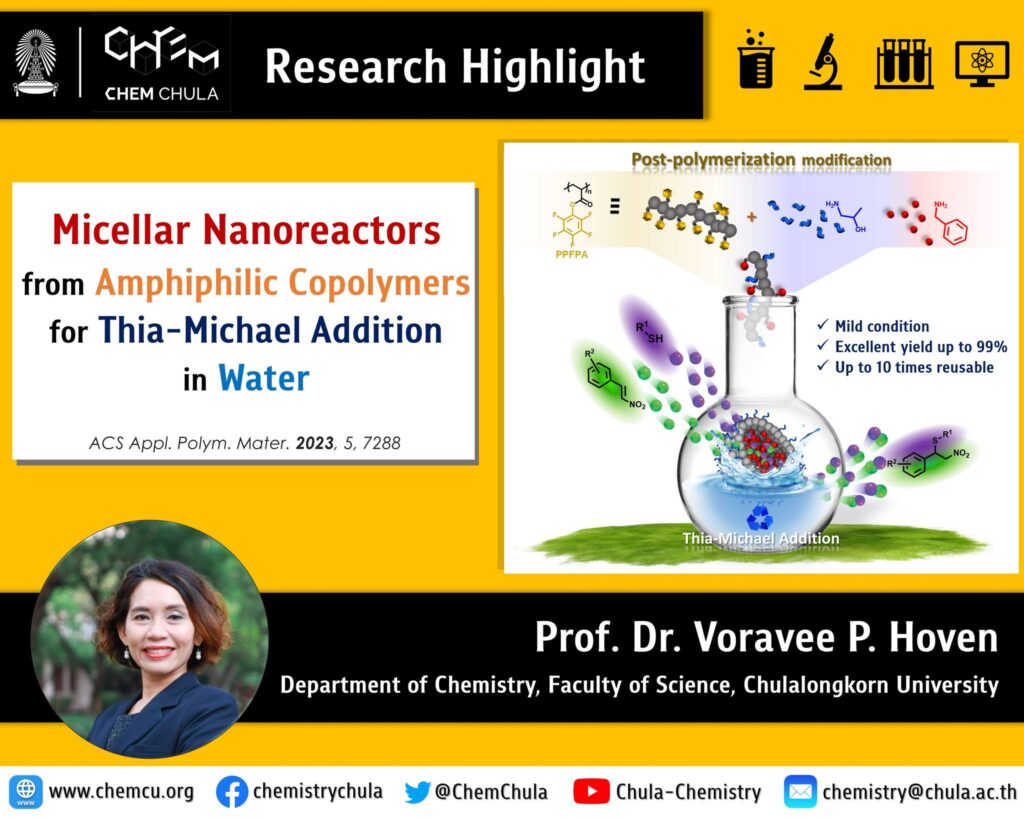Most chemical reactions are carried out using organic solvents, which are mostly toxic and eventually become problematic from both economic and environmental perspectives. To explore better routes for “Greener” chemical processes, this research aims to develop micellar systems serving as nanoreactors which can dissolve and stabilize organic substrates in water. So that organic syntheis can be performed in aqueous media. Post-polymerization modification of a polymer precursor, poly(pentafluorophenyl acrylate) (PPFPA) using benzylamine and 1-amino-2-propanol as nucleophilic modifiers resulted in amphiphilic random copolymers, poly(N-(benzyl acrylamide))-ran-poly(N-(2-hydroxypropyl)acrylamide), PBAM-ran-PHPAM that can assemble into spherical nanoparticles, well-dispersed in water with a diameter of less than 170 nm. The polymeric micelles served as nanoreactors for Thia-Michael addition between -nitrostyrenes and thiol derivatives resulting in excellent conversions and high isolated yields (75−99%) at ambient temperature. Moreover, the micellar nanoreactors can also be reused up to 10 times while maintaining a respectably high reaction conversion (75%).
- Witsanu Sombat
- Panassilp Authai
- Panuwat Padungros
- Voravee P. Hoven

